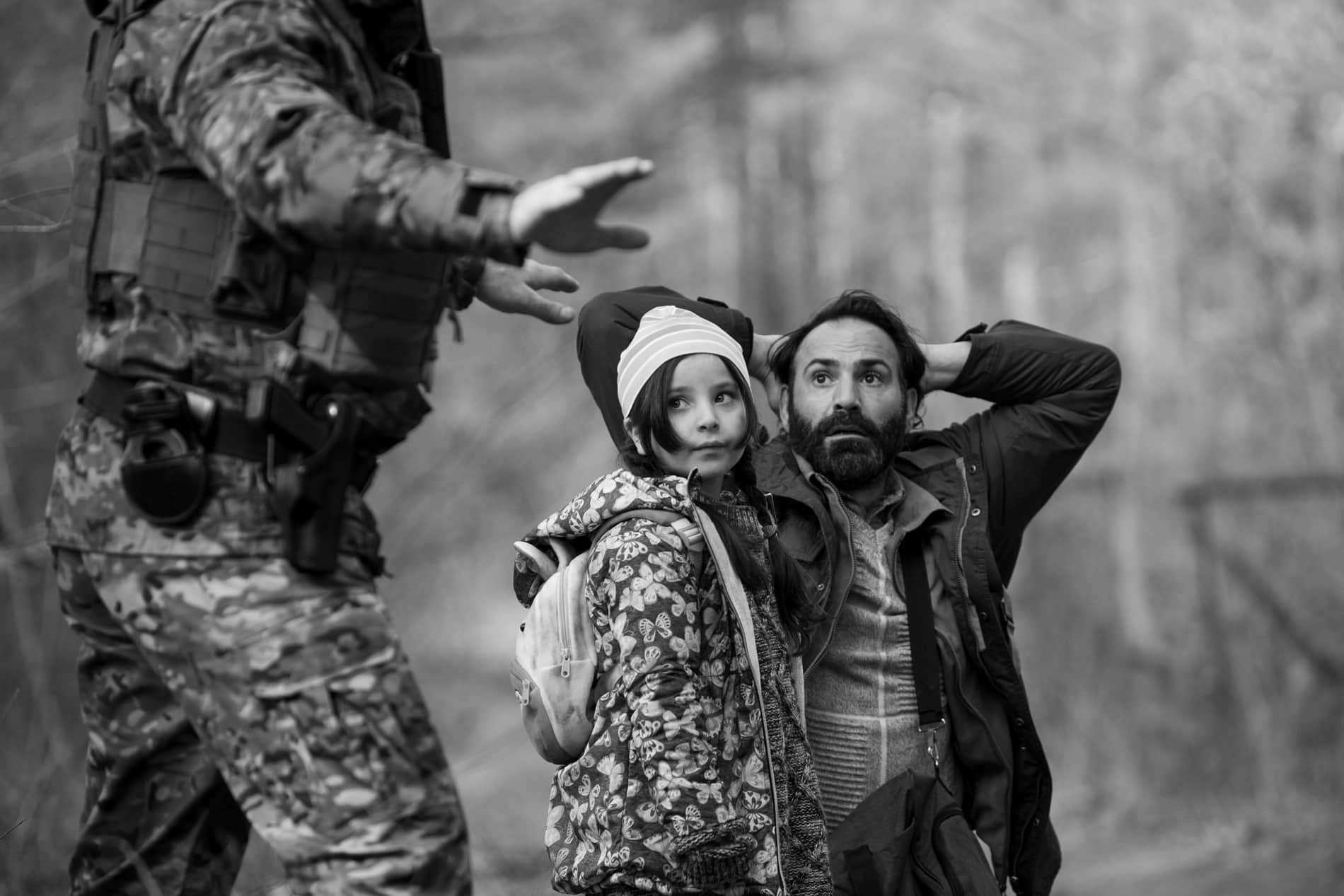
Agnieszka Holland wants you to listen. After beginning her career as an assistant to key figures of the Polish Film School, Krzysztof Zanussi and Andrzej Wajda, Holland marked out a cinematic career of her own. While she may be best known to a mainstream audience for her beautiful 1993 adaptation of Frances Hodgson Burnett’s The Secret Garden, it is a distraction from the political consciousness which has driven much of her work.
The two films which made her name were 1985’s Angry Harvest, nominated for the Academy Award for Best Foreign Language Film, and 1990’s Europa, Europa, which also earned her a nomination for Best Adapted Screenplay. Both films tackled aspects of the Holocaust which had not been seen in cinema before. Her international recognition led to a more mainstream mode of filmmaking, including work on several major television series including The Wire and House of Cards.
In 2011 Holland returned to her earlier political motivations, directing In Darkness about the German occupation of Poland. Her 2017 film Spoor adapted Nobel Prize-winner Olga Tokarczuk’s Drive Your Plow Over the Bones of the Dead as an ecological drama protesting the hunting of wild animals, while 2019’s Mr Jones brought new attention to the Holodomor, the Ukrainian famine engineered by Stalin in the 1930s.
Her latest film, Green Border, is perhaps Holland’s most controversial film to date. It dramatises the migration crisis on the Belarus-European Union border, staged from the perspective of refugees and border guards. It has been condemned by the Polish government. Minister of Justice Zbigniew Ziobro wrote on X (formerly Twitter), “In the Third Reich, the Germans produced propaganda films showing Poles as bandits and murderers. Today they have Agnieszka Holland for that.” A Rabbit’s Foot talks to Holland about her true intentions behind the film.
Lillian Crawford: Why did you decide to make this film?
Agnieszka Holland: I decided to do it because it’s going on. It’s happening. It’s the situation which is on the Polish-Belarusian border, but which is on all borders of the rich world. It’s one of the most important issues of the contemporary world, migration and how we respond. We are changing Europe into some kind of fortress and we believe that we will reach security if we create walls around our safe world. But at the same time we see that we become susceptible to blackmail and provocation coming from outside dictators and regimes. We are forgetting the achievements in the second half of the twentieth century when we believe that crimes against humanity and nationalism and racism belong to the past, at least in Europe.
I’m interested in the human side of that. The choices that people have to make. That’s why I decided to show the triple perspective—the refugees, but also the activists, local people, and the border guards who received the order to act in a way which is practically illegal. But they believe that they are serving their country.
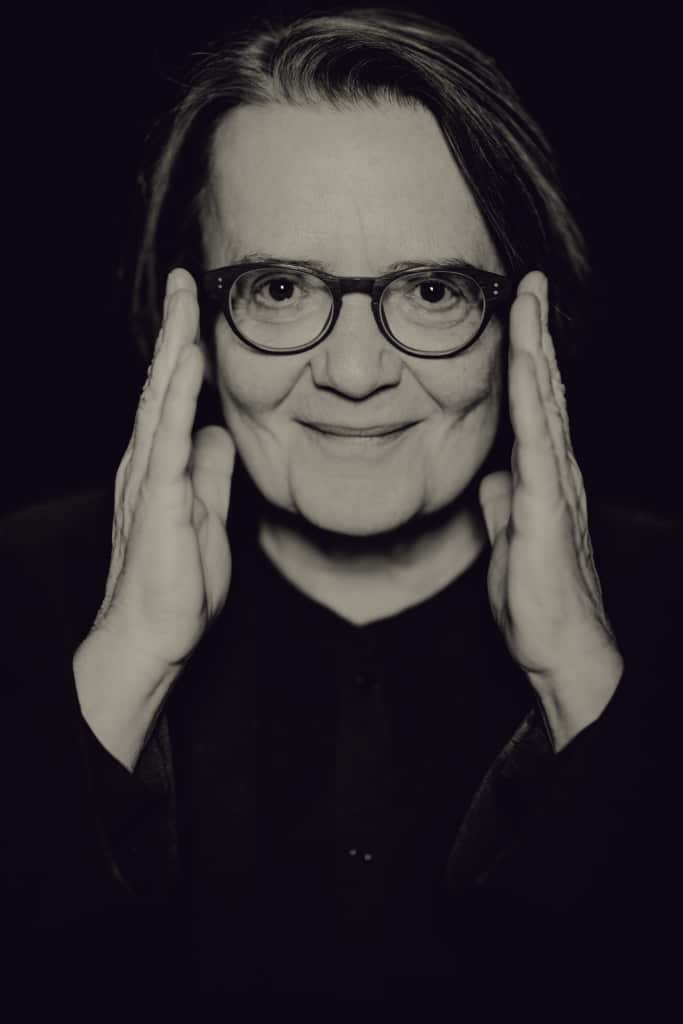
LC: How did you go about researching those different perspectives?
AH: When the crisis was provoked by Lukashenko and Putin, they decided that they could take political advantage of the migration situation on the Polish border for their elections, as they had done in 2015. They did it before and they won the election in 2015, spreading fear of invasion of migrants from Syria. Here they’ve been using similar tools, but they decided also to control the narration, to lock the zone around the border and make an emergency state there. Which was practically illegal, but they did it and very few people protested. It was difficult to have access to the most dramatic or brutal actions of the military forces.
That’s when I decided to make the film, because I understood that the government is afraid of the images and believes in the strength and power of images, and I believe in it too. The images I created were based on all available documentary sources. I was talking to many activists and one of my screenwriters went with them for two weeks to the actions in the forest. I spoke to several refugees, but mostly I was watching the tapes recorded by the activists. I also spoke to some of the border guards, which was the most difficult, of course, because they’ve been afraid to talk due to the possible consequences. So we had hours and hours of recordings and pages of material. It was probably the best documented film I’ve ever made.
LC: Why did you decide to turn it into a narrative feature then, rather than a documentary?
AH: It was impossible to access with a camera the places where the most important things have been going on. Several documentaries from Poland are coming out about those events, but they are mostly very intimate stories of one Polish family or one refugee family and they are unable to show the mechanism of that. Also my medium is fiction. If I want to show it in some totality, it has to be fiction.
LC: What power does fiction film have over documentary for you?
AH: It’s just that I know how to make fiction. But also I think that it can reach wider. It can reach a much bigger amount of people and in a way which is—I don’t want to say more emotional, documentary can be very emotional, but somehow it’s easier to make it more universal. To show the global impact of that, to have that kind of ethical dimension.
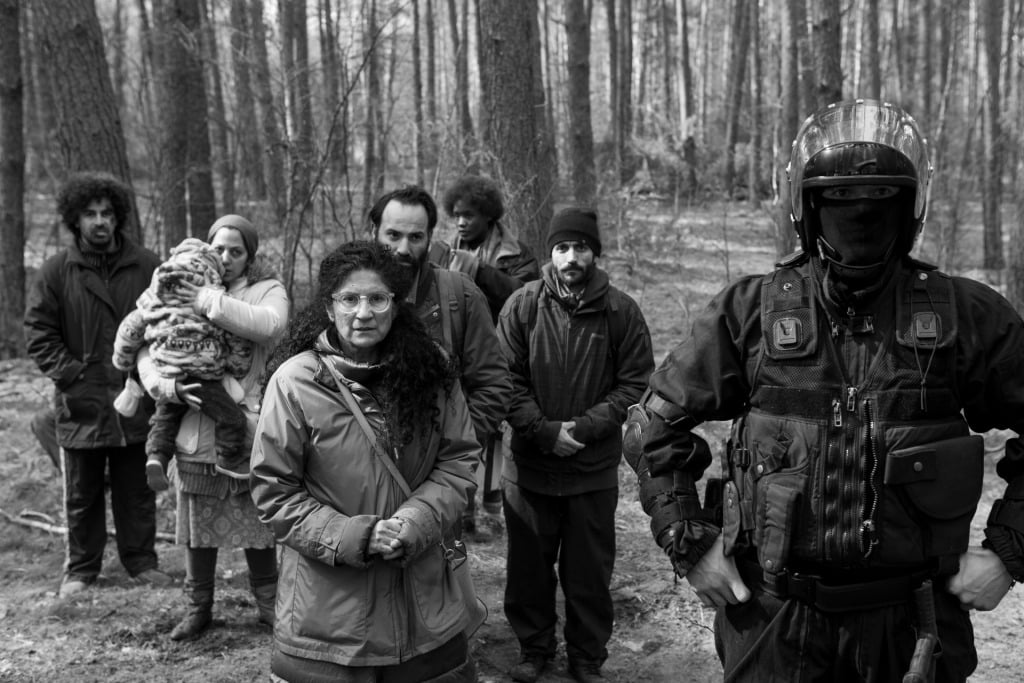
LC: I suppose there is something quite literary about it, particularly in the structuring and the different perspectives. You’ve worked with Olga Tokarczuk on Spoor, and I was thinking about Polish literature in the way that you frame the narrative. Does literature inspire you in the way that you create films?
AH: Yes, it’s true. In films, even if I’m basing it on actual events or real characters, I give myself a lot of freedom to open up my imagination. Here it was probably more limited. I felt a responsibility because I touched a very controversial and sensitive political subject. For example, when I showed some drastic facts, I wanted it to be documented at least from two sources. I was inventing less than in my other movies.
LC: Which is true of previous films you have made. Do those experiences steel you to the controversy that you have had with Green Border? Does it make it easier for you to say what you want to say?
AH: I didn’t want to give arguments to the hateful propaganda when they can catch me on some exaggeration or some invention. Of course, they’ve still been doing that but they didn’t have the proof. I had proof to the opposite. So it was a different situation than with films I have made in the past. I had to be more careful.
LC: Do you think there are limits to what you’re able to do? This is a conversation that occurs around Holocaust cinema, films like Europa Europa or Jonathan Glazer’s The Zone of Interest. Is there an approach you believe that one should have when deciding how to show real evil in fiction film? Are there limits to what you are able to show?
AH: When I was doing my first films about the Holocaust, Angry Harvest and Europa Europa, they were not the first films about the Holocaust. So I needed to renew the message or renew the story. You need to find different points of view and different forms of narration. But when I was doing Green Border it was the first film about those events, so it was much more raw. So I was not afraid to show what is happening in a very realistic way. Whereas in Son of Saul or The Zone of Interest the filmmakers have been looking for a perspective which is completely new to tell the story. We all know the story of the Auschwitz Commandant Rudolf Höss and what he was doing in Auschwitz. We know the Treblinka situation. But it was never shown from such a perspective and suddenly he is much more relevant today. We become used to a certain imaginary, and it is very difficult to change that. Those two films succeed with that.
When I was doing Holocaust movies or other movies like Mr Jones, I was doing it not only to honour the victims but because I felt that it can become relevant now. I had the feeling that the Second World War did not really end, that it was just put to sleep.
Agnieszka Holland
When I was doing Holocaust movies or other movies like Mr Jones, I was doing it not only to honour the victims but because I felt that it can become relevant now. I had the feeling that the Second World War did not really end, that it was just put to sleep. Its consequences, which first have been positive because humanity woke up and they said that it is impossible to come back to the situation which provoked Holocaust and other crimes against humanity. The European Union is a fruit of that attempt to fight the nationalists and racism. It was like a vaccination which has since evaporated. For about twenty I feel that it is coming back. That we are not immune anymore against that kind of situation. The migration challenge is one which very easily can trigger again the danger of such a massive evil. I feel that the world again is starting to be run by monsters. And that we have very weak tools to fight it.
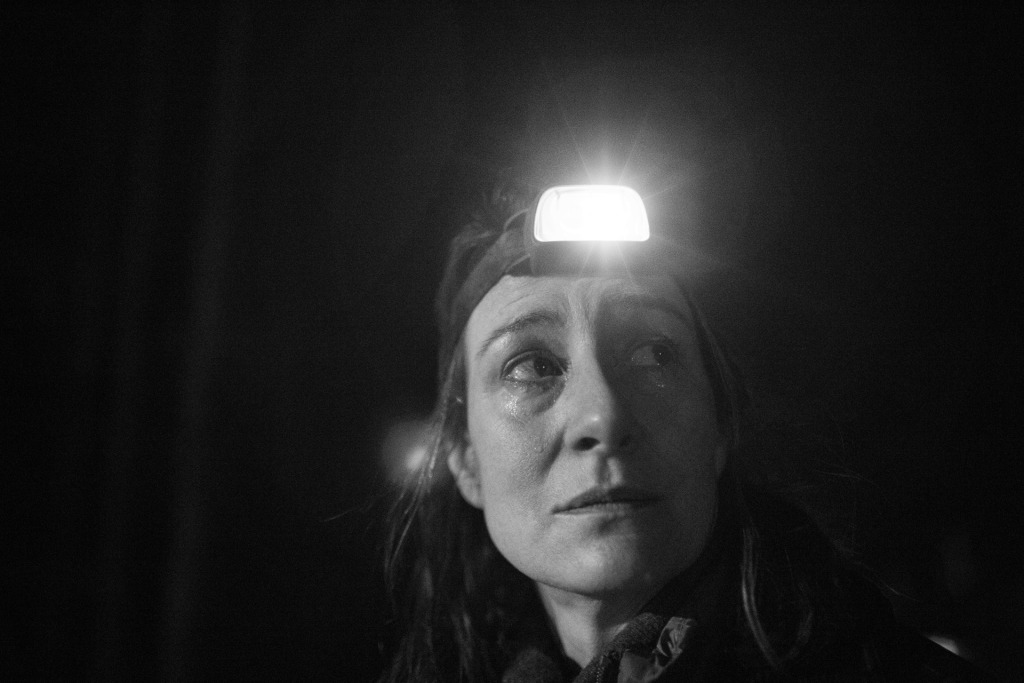
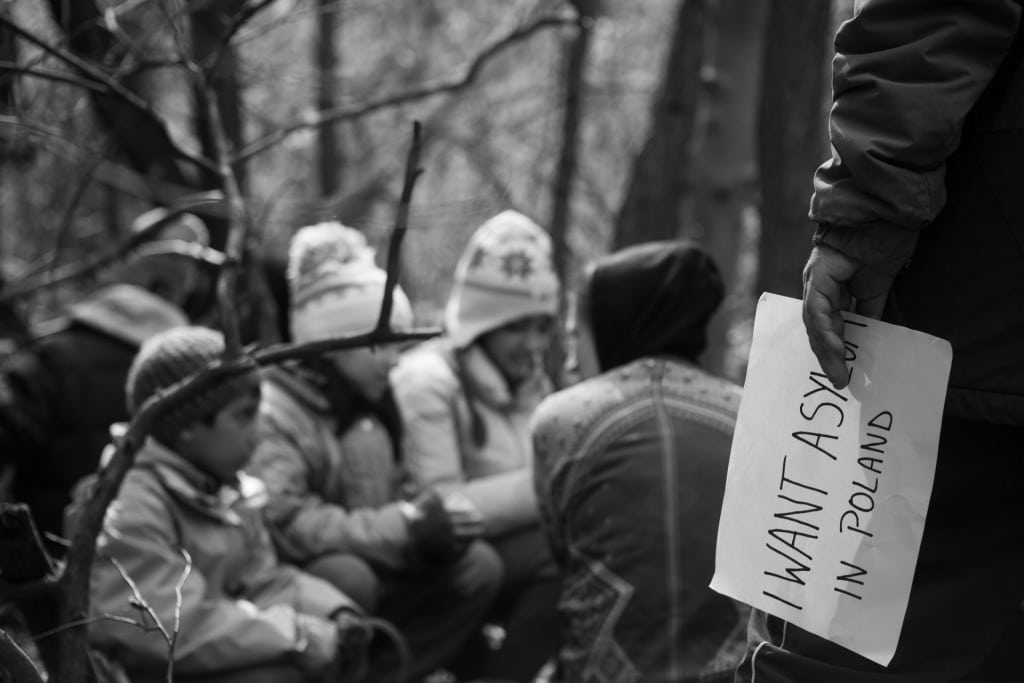
LC: Your tool has been cinema. How useful do you think that is?
AH: I thank that cinema has deserted that area of politics and difficult, painful questions, except for very few filmmakers. But now when the danger is so imminent, I think that at least some of them are waking up. I know that I am unable to change the world with my film, but I can at least change the minds and souls of some people. We are trying to bring this message to those who can be decisive, politically speaking. We’ve been showing the film in the European Parliament, in the European Court of Justice. We want to reach those politicians who can at least make little changes. It is difficult, it’s not very successful, but still we are knocking on those doors.
LC: What can a regular audience do after they have seen your film?
AH: On a practical level, you can do a lot. You can support those organisations and those people who are giving practical help to suffering people. Of course it will not make a huge difference, but it can make a real difference for the lives of some people. When I’m making a film for me the specific human being is more important than humanity. We need specific empathetic imagination. We grow accustomed to the most terrible crimes. The war in Ukraine goes on for two years and people don’t even want to listen about it. The massacre in Gaza created incredible outrage, but after a few months it’s no longer being talked about. That is the sin we are all committing, the sin of indifference. And as long as we are indifferent, the world will go in the most terrible direction. I think that a few things like corruption of the media, laziness and cowardice of politicians, and the indifference of society make the bed ready for the most terrible crimes.



